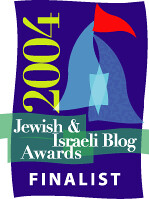'OBSERVANT READER' RESPONSE: CHAPTER 2
The Role of Religion
Religion, and the degree to which one is religiously observant, can be a major obstacle to relationships of all sorts—romantic, family or professional. In this role, religion is pretense, as is faith; the observant Jew filters everything through the lens of religion. But one of the big problems with identifying a particular mode of religious observance as “authentic” is that it establishes a hierarchy of morality, creates parameters for dissent and breeds enmity instead of amity.* Because of the emotional stake that religious observance has, to families and to the Jewish community at-large, it makes an excellent literary device.
In my own writing, the nonfiction that’s become my hallmark and the fiction that no one’s ever seen, religion is almost always a major influence because it presents a challenge to the modern person. The challenge can also be a personal one—how much of our practice is based in faith and how much in training? Does a religious education constitute thought control, the fulfillment of a divine mandate, or a methodology that we can consider and adapt for our own purposes? If something is not meaningful to us, can we change it? Or is our tradition an inviolable law? Is there inherent authenticity to be found, or is every heartfelt connection an authenticity of sorts?
These are issues that modern Jews grapple with on a regular basis; the battlefield is sometimes internal, but more often can take a public form, as denominations engage in public preenings of self-righteousness. (“We’re authentic,” says one. “No you’re not,” says another, “because authentic Judaism would never include X.” “You’re both wrong,” says a third, “because you’re completely discounting the contemporary role of Y and Z.”) The more one is involved in these kinds of discussions that aren’t really discussions, the more that the Jewish community continues its bickering over priorities at the expense of Jewish pluralism, and the more disenchanted individuals can become. (Also, I can tell you from personal experience that the longer someone is single, the more he or she considers the merits of flexibility and adaptation over a stalwart clinging to “the way it’s always been done.”)
A writer’s choice to include diverse views does not necessarily indicate that author’s ideology. His or her irreverence, playing with the language and laws of Judaism in a contemporary context, is the right of the writer/thinker/Jew, and makes for both interesting reading and high-stakes conflict between the modern, dynamic world and the staid unmalleability of tradition. In fact, it would be most fortuitous if people who read these works of struggle were inspired to think about the statement this makes about the contemporary Jewish community.
*Some people think this isn’t a bad thing, that insisting that only Orthodoxy is authentic establishes a high set of standards for Jewish observance. As Frumster would put it, you’re either a particular kind of Orthodox, or you’re “Traditional but growing.” The growth in question allows for people to find their own way, but the assumption is that finding that way to Orthodox observance is always the goal.


2 Comments:
Well, the site is called FRUMster.com, not FRUMCONSERVATIVEREFORMWHATEVERster.com. Don't you think it makes logical sense for them to believe that people there should be frum? If you're not religious, you can sign up for JDate instead.
Anonymous-I'm not sure that "frum" means "Orthodox" or vice versa. I think that there's a lot of confusion, especially in NYC among people in their 20s and 30s, of what these labels mean. The truth is that obviously, if one is not observant at all, JDate is a viable option. Although I do know a few observant, modern Jews who met spouses on JDate, the number is extremely low.
And I have also found that the vast majority of my friends are on JDate and Frumster, because they find that neither one is a precise match, observance-wise.
As far as my objection to the "traditional but growing" label is concerned, it presents assumptions that may not be true: what if I'm happy with my current observance level and in fact, consider myself quite traditional, but am experiencing dissonance with the observance level of available Orthodoxy? There's no allowance for people like that, who are traditional, have a solid Jewish education, but are a little too modern for Frumster and a little too traditional for JDate.
It's a more complex issue, the internet dating issue overall, because there's a certain amount of "checking of boxes" that categorizes us in objective ways that never seem to add up to a fully-fleshed out, nuanced portrait of an individual.
My opinion, with which you are obviously welcome to disagree.
Post a Comment
<< Home